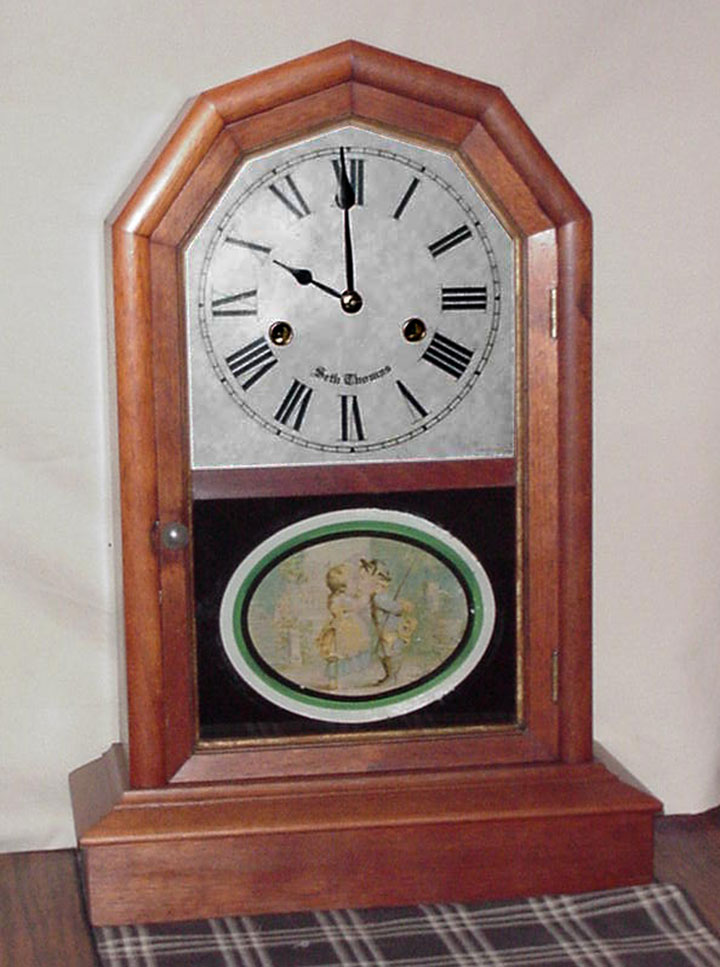FAQs - Antique Clocks
The following tips are general common-sense information, provided as a convenience to our customers. Old clocks can bring hours of enjoyment, and I hope this information maximizes your experience! This information is certainly not all-inclusive, and I assume no liability for any damage you cause to a clock by relying on this information alone. My purpose here is to impress upon you that old clocks require special care. Please rely upon a reputable clock restorer in your area!
How can I maintain my clocks?
Clocks are precise working mechanisms with gears and other parts that constantly rub against each other, causing wear over time. It stands to reason that — like your car — they need to be maintained on a regular basis. Cleaning & oiling every 2½ to 3 years should be sufficient.
Do not let anyone squirt WD-40 or any similar substances on a clock movement. These substances become sticky and will eventually clog the mechanism. Also, these substances actually ATTRACT airborne dirt! Utilize a reputable clock restorer in your area who will use a good grade of clock oil.
You will greatly extend the life of the clock with this simple preventive maintenance.
How do I pack and transport my clocks?
OK, so you're moving. If your clock has weights and a pendulum, TAKE THEM OFF and wrap these pieces securely and separately ... weights and pendulums left in place will move about and may break the case and any glass, and could damage the mechanism. This is a chance you don't want to take. Don't forget to pack the key.
Whatever container you use, make sure the clock and its separate parts are secure and do not shift.
How do I set up my clocks after the move?
All pendulum clocks need to have an even left-right beat, whether they're mantle, floor, or hanging clocks.
What does "in beat" mean? Listen to the tick of the clock. The tick-tock needs to be evenly spaced. If your clock does not tick evenly, it's usually because it's not level. Do the best you can in positioning the clock so the tick-tock sounds evenly spaced. If you just can't get it in beat, ask your local reputable clock restorer for help.
Do you get the idea that, once the clock is in beat, you shouldn't move it? You're right. That means deciding where the clock will be permanently located and then asking the maid to dust AROUND the clock, but not to move it.
How do I change the time?
There are different clocks with different mechanisms ... too many to address here.
Do you have a clock that strikes? Well, then, if you are familiar with its mechanism, go ahead and change the time. If you are NOT familiar with your clock mechanism, contact your local reputable clock restorer for assistance. He can guide you through your own particular situation.
WARNING - Striking antique clocks are subject to damage by people trying to change the time — especially by trying to turn the minute hand backward. Most newer clocks have built-in safety devices that the older clocks do not have, so be careful!

